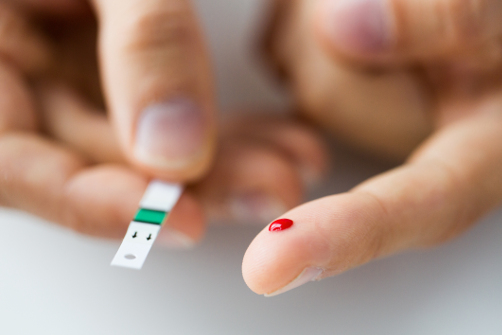Diabetes and Oral Health – The Not-so-sweet Connection
Written by Consumer Guide to Dentistry Last modified on April 12, 2019
Diabetes is a serious condition in which blood sugar levels cannot be properly managed by the body. Two types of diabetes exist: Type 1 and Type 2. Type 1 diabetics don’t generate enough insulin — which is essential for transferring sugars in the blood to cellular energy — while type 2 diabetics no longer respond to insulin. For both these types of diabetes, the end result is the same: dangerously elevated blood sugar levels.
Higher-than-normal blood sugar levels are generally known to damage your eyes, kidneys, nerves and heart. But did you know that it can also cause problems for your oral health?
Diabetes and Dentistry
Untreated, diabetes can have a serious impact on oral health. In fact, one in five cases of tooth loss is connected with diabetes. Additionally, diabetics have a significantly greater risk of gum disease than the general population. According to the ADA, approximately 22 percent of people diagnosed with diabetes have gum disease.

How Does Diabetes Affect the Teeth and Gums?
The mouth is full of potentially harmful bacteria that is managed in part by oral hygiene. High-blood sugar levels leads to increased levels of sugars and starches in the mouth. Harmful bacteria, which feed on these sugars and starches, attack the teeth and gums. The compound effect in diabetic patients of being more susceptible to bacterial infection and less-capable of fighting off bacteria makes for a dangerous combination. This connection is even more harmful for diabetic smokers, who can be up to 20 times more likely to suffer from gum disease.
New research suggests that not only does diabetes potentially increase the risk of gum disease, the opposite is also true. Gum disease is a serious infection of the oral tissue, and any infection in the body has the potential to spike blood sugar levels. Over time, excessively elevated sugar levels can cause diabetes.
Gum Disease and More
Gum disease may be the most noteworthy dental health effect of diabetes, but it’s also worth noting that decreased production of saliva, another side effect of diabetes, can lead to dry mouth. Dry mouth takes away one of the body’s best natural weapons for protecting oral health. Saliva is essential when it comes to washing away the harmful acids and bacteria in the mouth, particularly after eating and/or drinking. Less saliva in diabetic patients means more bacteria accumulates in oral tissues, increasing the risk of tooth decay and gum disease. (Check out our slideshow on the 5 essential benefits of saliva.)
Diabetics may also experience delayed wound healing in the mouth, meaning that canker sores linger longer than for most people. While not a particularly serious consequence, canker sores are a pain in the …mouth (as we all can attest). They are a nuisance and can interfere with eating, speaking and drinking. So the idea of them lasting longer should be enough to make anyone focus more on oral health.
So What Can You Do?
As with all things diabetes, the front line of defense is careful monitoring of blood-glucose levels. Diabetics who properly manage blood sugar diminish their risk factors for all associated concerns, including dental health problems.
It’s also important for people with diabetes to pay extra close attention to oral health. Be sure to brush twice a day for a minimum of two minutes, floss at least once a day, and use mouthwash to help wash away lingering bacteria.
Make sure to adhere to the ADA-recommended twice yearly visit to your dentist. These visits allow you to learn about the best practices for managing diabetes and oral health. Regular visits, can also help ensure that you’re able to spot the warning signs of diabetes-related dental problems.
Lastly, smoking is bad for your health in many ways (diabetes or no diabetes), but if you’re a diabetic and still smoking, it’s imperative that you try and quit; for the sake of your smile and your health.
For more information related to diabetes and dental health, check out this infographic from the ADA.
You can also check out our article on the general health implications of oral health problems.


